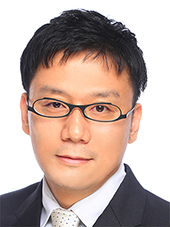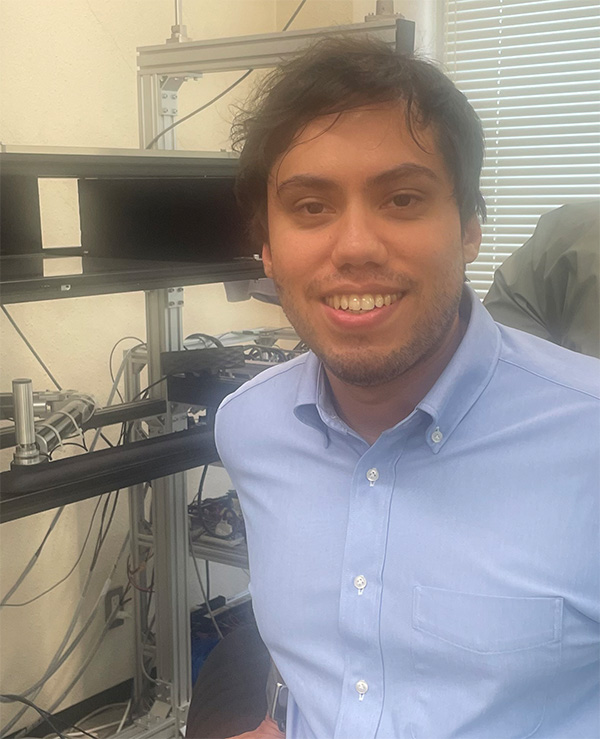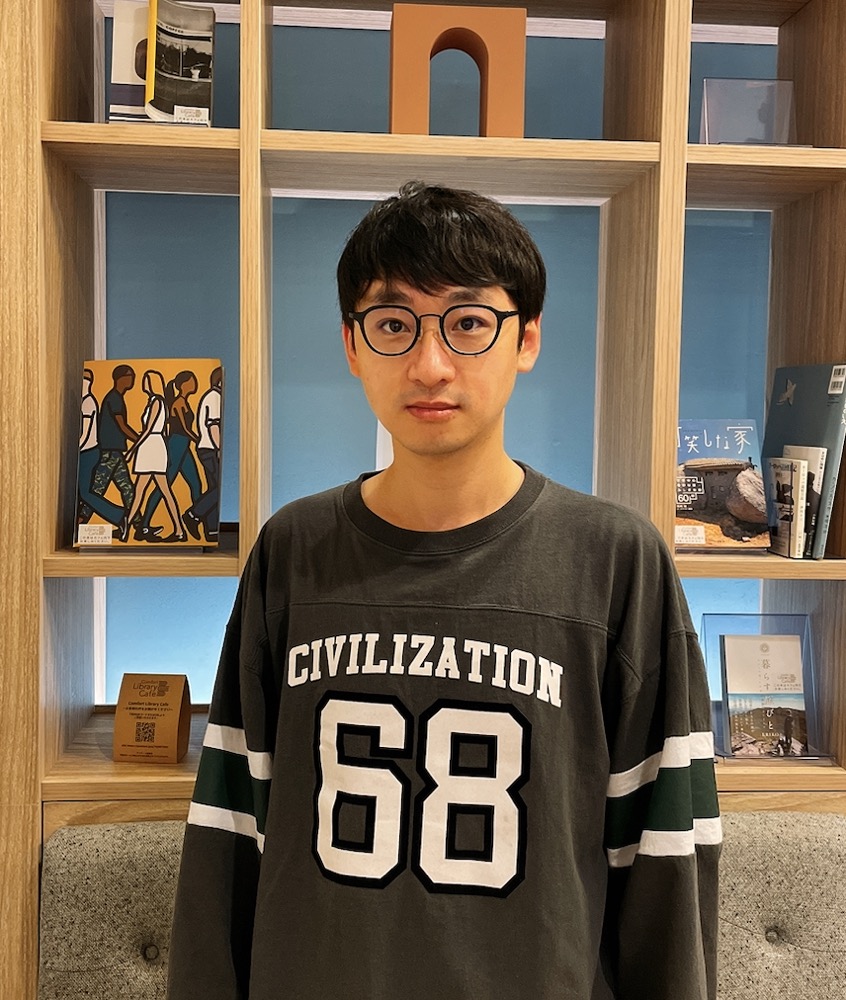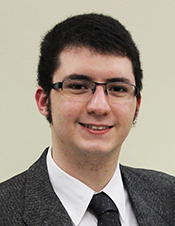Lab Director

Jun Izawa, PhD
Professor in Engineering, Information, and Systems
email: izawa*emp.tsukuba.ac.jp
Co-Director

Victor Barradas, PhD
Assistant Professor in Engineering, Information, and Systems
email: barradas*hebbs.emp.tsukuba.ac.jp
Members
Ryota Ishikawa
PhD student in Humanics , JSPS Research Fellow (DC2)
Master Degree in Behavior Science at University of Tsukuba
Ryota joined HEBBSS lab in 2018 when entering the graduate school. After acquiring Master degree in Behavior Science, he started his Ph.D in Humanics in 2020. He has been working on investigating the mechanism of feeling Bodily self-consciousness from the viewpoint of motor learning. The current interest lies in how our perception is influenced if the consciousness is modulated via experiences in the VR. He hopes to uncover the neural basis underlying the phenomenon where we feel having another body or perceive somewhat stimuli when experiencing the VR.He explores computational mechanisms and modulatory factors of pain perception. In the future, he intends to develop novel methodology to control pain feeling.
His research has been published in iScience, Cognition, and Pain Reports
.

Jiaxing Tian
PhD student in Empowerment Informatics
Master Degree in Information Science at Nara institute of science and technology
Jiaxing joined the HEBBSS lab in 2022 and started his Ph.D. in Empowerment Informatics. He has been working on the computation models of "exploration" and "exploitation" in human decision-making strategies based on reward stimuli. Currently, he is focusing on mathematical models of motor memory based on meta-cognition theory. In the future, he aims to develop powerful artificial intelligence models and algorithms by elucidating the mechanism of the human brain.

Meng-Hung Lee
PhD student in Humanics, JST SPRING
Master Degree in Institute of Brain Science at National Yang Ming Chiao Tung University
Meng-Hung joined HEBBSS lab in 2022 and started his Ph.D in Humanics. As he majored in deep learning model (GAN) synthesizing the music which can decrease the pain from brainwave, at NYCU. His research interest lies in how sleep influence motor behavior and learning. He hopes to elucidate and utilize the effects and their underlying mechanisms to improve motor rehabilitation and geriatric care.
Towa Arai
PhD student in IMIS program
MS in Engineering, IMIS program, University of Tsukuba
Towa joined HEBSS LAB in 2022, and entered the PhD courese in Intelligent and Mechanical Interaction Systems in 2025. He is researching adaptive motor learning in response to external perturbations using artificial neural networks. Through simulations with biologically plausible models that mimic brain structures, he aims to not only contribute to the field of neuroscience but also uncover the mechanisms behind humans’ remarkably flexible and rapid learning capabilities. His research has potential industrial applications while also exploring the fundamental nature of human consciousness.
Yuto Fukuda
PhD student in Empowerment Informatics, JST BOOST
MS in Engineering, IMIS program, University of Tsukuba
Yuto joined the HEBBSS lab in 2022 and entered the PhD course in Empowerment Informatics in 2025. He is interested in decision-making mechanisms in the context of motor control and neurorehabilitation. His research aims to develop a novel computational model of decision-making to understand the role of consciousness in implicit motor function.
Rei Taomote
PhD student in Empowerment Informatics
MS in Engineering, IMIS program, University of Tsukuba
Rei joined the HEBBSS lab in 2023 and began his Ph.D. His research explores how VR-induced changes in bodily self-consciousness affect pain perception and brain activity, aiming to develop non-invasive VR-based treatments for chronic pain.
Huiting Ma
PhD student in Humanics
Master Degree in Mechanical Engineering at Dongguan University of Technology
Huiting joined HEBBSS lab in 2025 and started her Ph.D in Humanics. Her previous research during master’s program focused on human’s continuous motion intention recognition based on surface electromyography and muscle synergy analysis. Currently, she furthers her research on revealing the mechanism of neural activity generated by external stimulations. By this means, she aims to develop robust computational model which can improve the comprehension of bioelectric data and thus lead to enhancement in brain-machine interaction technology.

Kevin Jaehwa Lee
PhD student in Intelligent and Mechanical Interaction Systems, JST SPRING
Master Degree in Computer Science (Artificial Intelligence) at University of Southern California
Kevin joined the HEBBS lab in 2025. His research focuses on computational modeling of post-stroke motor recovery, combining neuroscience and machine learning to explain how patients transition from suboptimal to optimal movements during rehabilitation. His work develops biologically grounded, two-timescale models that couple the action selection module with the motor adaptation module, capturing clinical phenomena such as the “valley of recovery” and “learned nonuse.” His long-term goal is to develop AI-driven, personalized rehabilitation systems that accelerate recovery and enhance understanding of post-stroke recovery through machine learning.
Alumni

Lucas Dal'Bello, PhD
(Researcher at Laboratory of Neuromotor Physiology at Fondazione Santa Lucia)
PhD in Humn Informatics, MEXT Scholarship Student
BS in Molecular Sciences at Universidade de São Paulo
Lucas joined HEBBSS lab in 2017 Fall and started his Ph.D. in Empowerment Informatics in 2018 Spring. He graduated from the Molecular Sciences program at USP in Brazil, where he acquired experience on EMG, linear systems modeling, and computational neuroscience. His research interest lies in investigating how information related to motor control is processed in the human brain, by using experiments and mathematical modeling of processes related to motor control. By helping to ellucidate mechanisms of information processing in the brain, he intends to contribute to the development of novel techniques and devices for diagnostic and treatment of motor disorders, and to the development of devices which supplement and extend human function.
His experimental result has been published in Neural Networks. His new theory has been published in Neural Networks. [Press Release]
Yihao Wu
Researcher at Kyocera Corporation
PhD in Human Informatics
Yihao joined HEBBSS lab in 2018 and started his Ph.D in Empowerment Informatics in 2019. He graduated from the Enginerring System from University of Tsukuba. He is concentrating on his studies about the reward-based learning of human form the viewpoint of enginerring. He hopes to elucidate the mystery of human brain and improve the AI tecnology in the future.His Regret-Reinforcement Learning has been issued from IEEE. His theory of internal model switching for reinforcement learning and its emprical test has been published from Neural Networks .
Taisei Sugiyama
Research fellow in Fujita Health University
PhD in Human Informatics at University of Tsukuba
Taisei joined HEBBSS lab in 2016 and started his Ph.D. in Empowerment Informatics in 2017. As he majored in Cognitive Science at UCLA, his research interest lies in how external stimuli (e.g., rewards, training environments) influence motor behavior and learning. By elucidating and utilizing the effects and their underlying mechanisms, he hopes to improve motor rehabilitation and develop a robot rehabilitation system in the future. He also has experience in brain stimulation (TMS, tDCS), neuroimaging, and computational neuroscience. His research has been published in Nature Communications, European Journal of Physical and Rehabilitation, and PNAS.
